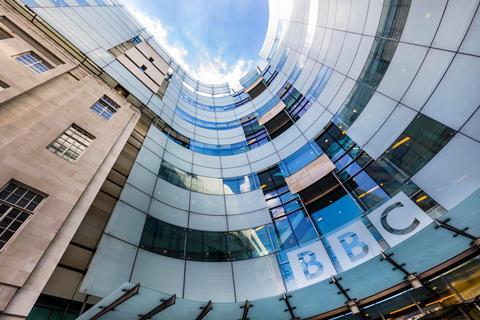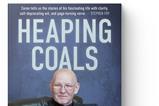It’s far from perfect but the Beeb has a vital role to play in our democracy. Church leaders should consider becoming ‘critical friends’, says Rev Peter Crumpler

Where is the voice of the Church in the row over Gary Lineker and his comments on the government’s immigration policies?
The BBC may have backed down from suspending the high-profile broadcaster from his role presenting Match of the Day but the wider issues around the Corporation’s impartiality roll on. Director General Tim Davie stands accused of overplaying his hand, while chairman Richard Sharp faces calls to resign after helping Boris Johnson secure an £800,000 loan and allegedly not disclosing this during the appointment process.
The Corporation’s impartiality is under attack by politicians of all parties, with few people willing to speak up for the BBC. Meanwhile, some Christians have worried about a liberal or secular agenda being promoted by the Corporation. Many also point to the big mistakes the BBC made around Jimmy Savile or its hounding of Cliff Richard.
But I firmly believe that church leaders should be speaking up in support of the BBC.
The BBC is far from perfect, but its job is to hold political power to account, and as Christians, we know that is a noble aim - our own savior often spoke truth to power in his ministry.
As a public service broadcaster, the BBC has a vital role to play in our democracy, and church leaders could be acting as ‘critical friends.’ This means we support it in standing firm against unfair tabloid criticism and vested interests, while at the same time urging it to improve its coverage of religious affairs, especially if we feel bias is present.
The Corporation has been under prolonged attack by politicians and pressure groups over recent years. Authors Patrick Barwise and Peter York comprehensively detailed The War against the BBC in their 2020 book. They set out the sustained assault on the Corporation, including from rival media owners and described the technological and financial challenges facing the BBC in a world increasingly dominated by global streaming giants.
When populist politicians manipulate voters with half-truths , it’s important that journalists are able to challenge governments
Last November, I helped organise a round table discussion with the two authors for a group of Christian and other faith leaders in St Albans. It prompted a lively discussion and, I felt, a wider awareness of the threats facing our national broadcaster. The event formed part of an ongoing project called ‘Where is Truth Now?’ organised within the CofE Diocese of St Albans. It aims to bring together people from a wide range of faiths and disciplines to look at issues around truth in modern society.
Sadly, fighting disinformation and fake news is not top of the agenda of faith groups. But in a world where populist politicians can manipulate voters with half-truths and lies, it’s important that we have journalists and broadcasters ready to challenge governments.
If that means sometimes the BBC finds itself in the firing line of political parties, then so be it – that means they are doing their job properly. The BBC is often on the front-line of combating fake news and disinformation, and that can be an uncomfortable place.
The BBC’s reflection of contemporary British life through news, drama and the arts is one of the common strands holding our nation together. Take, for example, the extensive coverage following the Queen’s death, the response to her passing and the funeral at Westminster Abbey – believed to be the nation’s most-watched church service with a massive global audience. The BBC, and other media, conveyed the nation’s mood and helped the country mourn.
At local level, churches could be supporting the important role played by BBC local radio stations that are facing major cuts. Churches are grassroots organisations, firmly rooted in their communities. We should be working to encourage our areas – including the local media – to thrive.
So where are the church voices speaking out today for the BBC? I’d love to hear them and believe they would be speaking for many viewers and listeners frustrated that the Corporation’s reputation and standing is being eroded by politicians and others wanting to avoid scrutiny and criticism.





































2 Readers' comments